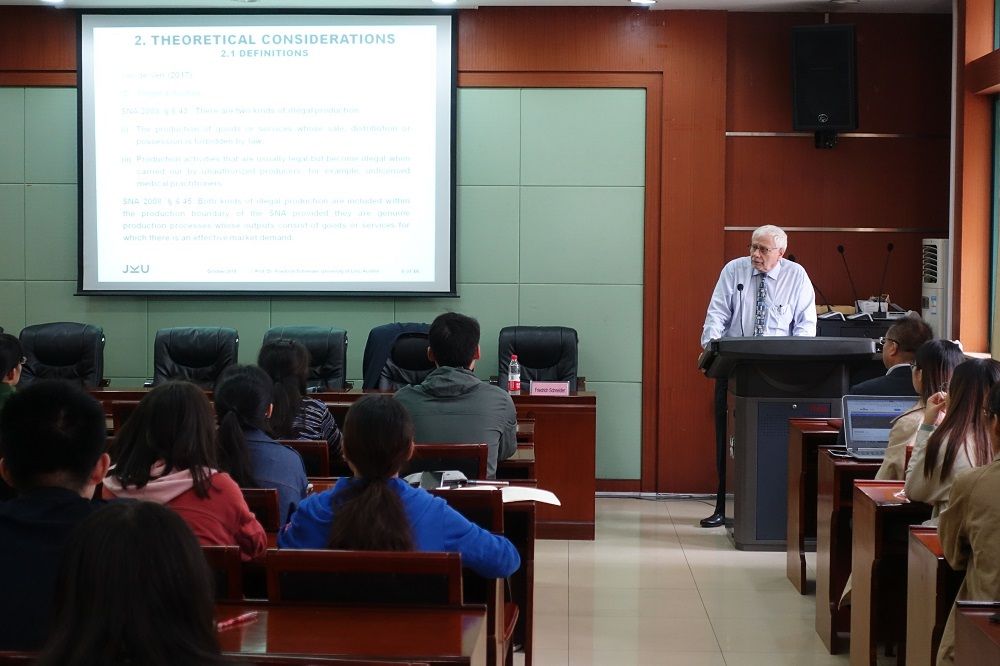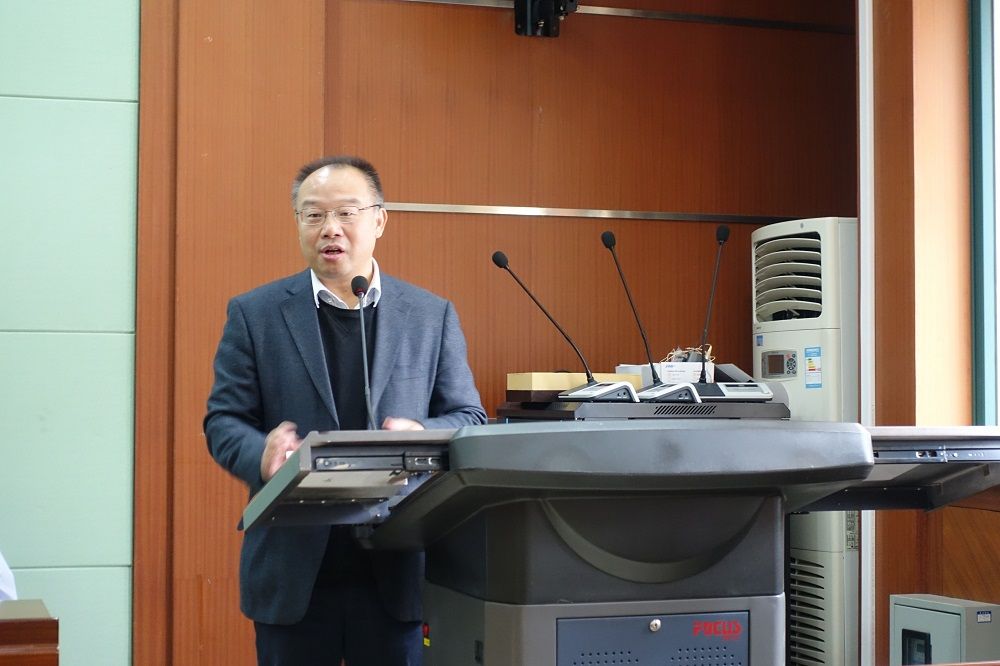At 9:00 a.m. on October 25, 2018, the "Series Academic Reports by Famous Experts for Anniversary Celebration", hosted by the School of Public Finance and Taxation and Institute of Income Distribution and Public Finance of Zhongnan University of Economics and Law, was successfully held in conference room 403, North of Wenquan Building. Austrian economist Friedrich Schneider once again gave a wonderful lecture to the teachers and students of our school. The theme of the lecture was "The Size of Shadow Economy in China’s Provinces over 1995-2015:Using the MIMIC Approach". The lecture was presided over by teacher Sun Qunli of the School of Finance and Taxation.


Among the three parts of the lecture, the first was to introduce the scale and development of the underground economy in China and its 30 provinces from 1995 to 2015. The second was to show the degree of corruption in China's 30 provinces, and the third was to propose measures to reduce the underground economy.
Professor Friedrich Schneider first made a theoretical analysis on the underground economy, which mainly explained the concept of the underground economy, listed the main reasons for it and tax evasion, and put forward the key indicators reflecting the underground economy: official GDP, cash, official employment and income inequality.
Secondly, the professor put forward three methods to evaluate the underground economy: the first method investigated or "calculated" the discrepancy in the system of national accounts, which determined the scale of the underground economy at the micro-level; the second method was the Money Demand Method, which was an indirect approach using macroeconomic indicators to measure the development of the underground economy; the third method was MIMIC (Multiple Indicators, Multiple Causes), which was a statistical model using statistical tools to estimate the underground economy as "unobserved" or "potential" variables.
Professor Friedrich Schneider used MIMIC to analyze the situation of China's underground economy from 2016 to 2018. Compared with the other three countries in Asia – India, Russia and Vietnam – China's underground economy was the least developed. Based on Money Demand Method, the professor then analyzed China's underground economy from 1980 to 2017 and concluded that the size of China's underground economy had decreased from 20.71% in 1980 to 8.23% in 2017. The analysis of different regions from 1995 to 2005 showed that the most developed underground economy was in western provinces, while the least in eastern provinces. The development level in central provinces was basically the same as the national average amount, with Xinjiang being the highest (17.18%) and Zhejiang being the lowest (9.36%).
Then, the professor estimated the simulation path of corruption in China with the MIMIC method and analyzed the corruption degree of each province in China. The results showed that the overall corruption degree in China presented a downward trend from 1995 to 2005, with the highest corruption degree in the Western Region and the lowest in the eastern region. Shanghai, for example, had the lowest average corruption index (at 1.65), while Gansu had the highest (7.77).
At last, Professor Schneider proposed policy measures to curb the underground economy. First, the government could deregulate the economy or encourage self-employment, thereby reducing unemployment and contributing positive efforts to control the size of the underground economy. Second, along with encouraging self-employment, people's trust in public institutions should also be boosted, which would reduce the likelihood of self-employed individuals transforming their economic activities into the underground economy. Once it happened, the effectiveness of the government's policies to encourage self-employment would be impaired. Third, focus on reducing overall taxes, especially indirect taxes and tariffs. Fourth, improve the overall quality of institutions by establishing democratic and transparent ones that reduce regulatory burdens, corruption and bureaucracy, to restore people's trust and confidence in public institutions. Fifth, simplify licensing procedures, speed up the issuance of documents needed to start a business, reduce bureaucratic barriers to such documents, improve transparency in the whole process and cut down the administrative burden on enterprises. Sixth, the government could restrict the use of cash by promoting increasingly popular e-payment. For example, the government could establish sufficient infrastructure, especially in the service industry and rural areas, provide incentives for companies that encourage clients to use e-payment and deposit employees' salaries in banks, or organize companies to inspect related terminal facilities of bank cards.
After the report, Professor Schneider had a heated discussion with the teachers and students present on relevant issues. Mr. Sun Qunli summarized the lecture and expressed his heartfelt thanks to the presence of Professor Schneider, teachers and students. Thus far, the report was successfully concluded.
